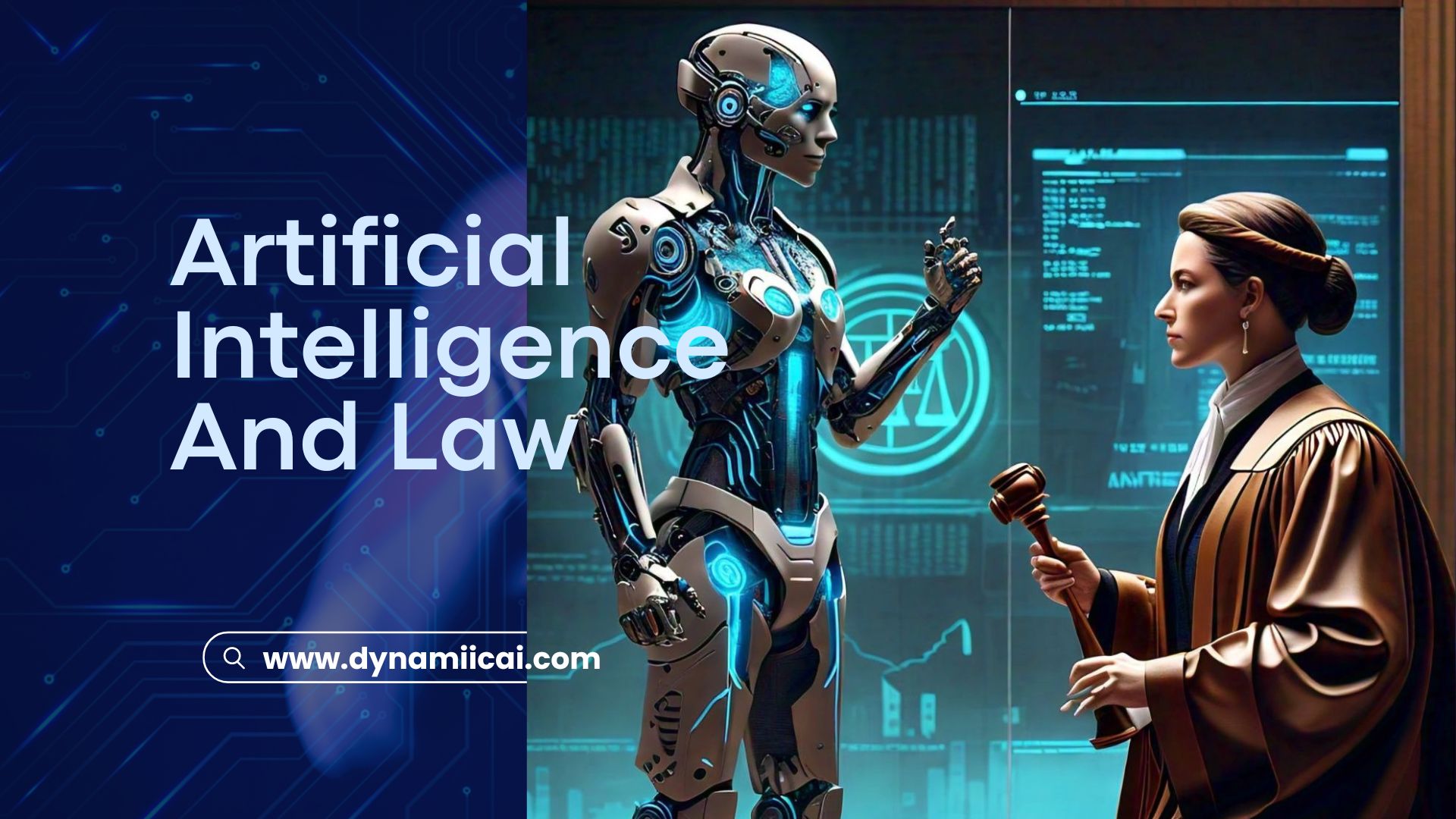Artificial Intelligence And Law

Artificial Intelligence (AI) is revolutionizing various sectors, and the legal field is no exception. AI and law intersect in numerous ways, from predictive analytics that forecast case outcomes to intelligent contract analysis and legal research automation. For you and me, this means more efficient legal processes, reduced costs, and potentially fairer outcomes. AI can assist lawyers in swiftly handling vast amounts of data, allowing them to focus on more strategic tasks. As AI continues to evolve, it holds the promise of transforming the justice system, making it more accessible and effective for everyone.
Introduction to Artificial Intelligence and Law
Artificial Intelligence (AI) is revolutionizing various sectors, and the legal field is no exception. But what exactly does this mean for you and me? Let’s dive into the fascinating world of AI and law, exploring how these two domains intersect and what it means for the future of justice.
AI streamlines legal research, predicts case outcomes, and even automates mundane tasks. These advancements enhance efficiency and reduce costs, making legal services more accessible. However, this integration also raises ethical concerns and questions about accountability. As AI continues to evolve, its impact on the legal landscape will undoubtedly grow, shaping the future of justice.
Artificial Intelligence is transforming the legal field, acting as a smart assistant capable of learning and executing tasks that once required human intellect. In law, AI is revolutionizing the industry by automating mundane tasks, predicting legal outcomes, and offering legal advice. This shift not only enhances efficiency but also democratizes access to legal services. However, it raises important questions about ethics, privacy, and the future role of legal professionals. Understanding these impacts is crucial as we navigate the evolving landscape of AI in the legal industry.
The Evolution of AI in the Legal Field
Artificial Intelligence and law have become increasingly intertwined. AI’s journey in law began with simple document automation and has evolved into sophisticated systems capable of analyzing vast amounts of data. Early applications focused on automating tedious tasks, but today’s AI can understand context, make predictions, and even interact with clients. This transformation is revolutionizing legal research, contract analysis, and case prediction, making legal processes more efficient and accurate. As AI continues to advance, it holds the potential to further streamline legal practices, ensuring a more accessible and responsive legal system for all.
Revolutionizing Legal Research and Document Review

Artificial Intelligence is transforming the legal landscape, particularly in legal research and document review. AI-powered tools like ROSS Intelligence utilize natural language processing to swiftly analyze vast amounts of legal texts. This technology allows lawyers to quickly sift through thousands of documents, significantly enhancing research accuracy and efficiency. By automating repetitive tasks, AI enables legal professionals to focus on more complex aspects of their work, ultimately improving the quality of legal services. The integration of AI in law not only accelerates research processes but also ensures a higher level of precision and reliability in legal documentation.
Predictive Analytics in Legal Decision-Making

Artificial Intelligence and law are increasingly intersecting, revolutionizing legal decision-making. AI’s predictive analytics capabilities are transforming the legal field by analyzing past case data and identifying patterns to forecast outcomes of current cases. This advancement aids lawyers in strategizing more effectively and provides clients with a clearer understanding of their potential court success. Essentially, it functions like a data-driven crystal ball, offering insights through advanced algorithms. This integration not only enhances legal practice efficiency but also promotes transparency and informed decision-making for all parties involved.
AI and Contract Management
Artificial Intelligence and law intersect significantly in contract management. Contracts, essential to legal transactions, often involve complex, time-consuming processes. AI transforms this landscape by automating tasks such as contract creation, review, and management. Advanced tools like Luminance and Kira Systems can swiftly identify potential risks, ensure compliance with legal standards, and suggest improvements. This not only streamlines workflow but also minimizes errors, saving both time and resources. Embracing AI in contract management enhances efficiency and precision, making it an invaluable asset in the legal industry.
Virtual Legal Assistants and Chatbots: Revolutionizing Legal Services
Artificial Intelligence and Law are converging with virtual legal assistants and chatbots leading the charge. These AI-driven tools are revolutionizing how clients interact with legal services. They efficiently handle basic legal inquiries, manage appointments, and draft straightforward documents, offering around-the-clock support. This accessibility not only enhances convenience but also makes legal services more affordable. Imagine virtual assistants like Siri or Alexa, but tailored to the legal field, bringing cutting-edge efficiency and accessibility to everyday legal needs.
Ethical Considerations in AI and Law
The Role of AI in Criminal Justice
Artificial Intelligence and Law intersect profoundly in modern criminal justice. AI technologies are transforming the field by predicting crime hotspots and aiding investigations through sophisticated data analysis. Predictive policing tools help law enforcement agencies allocate resources more efficiently and anticipate potential criminal activities. Despite these advancements, concerns persist regarding privacy issues and inherent biases in AI algorithms. Ensuring ethical implementation and transparency is crucial to harness the benefits of AI while addressing these challenges. Balancing innovation with responsibility is key to the future of AI in law enforcement.
Navigating Intellectual Property Challenges
The intersection of artificial intelligence (AI) and intellectual property (IP) law is rapidly evolving. As AI systems generate creative works and inventions, they challenge conventional concepts of authorship and ownership. This emerging technology prompts a reexamination of IP frameworks to balance the protection of human creators’ rights with the promotion of technological innovation. Legal reforms are being crafted to address these complexities, ensuring that AI’s contributions are acknowledged while safeguarding established intellectual property principles. As AI continues to advance, staying informed about these legal developments is crucial for innovators and creators alike.
Regulatory Challenges in Artificial Intelligence and Law
The rise of Artificial Intelligence (AI) brings significant regulatory challenges. Legislators face the task of fostering innovation while safeguarding public interest. Regulations must tackle concerns like liability, accountability, and ethical AI use. Crafting a legal framework that evolves alongside technological progress is essential for ensuring responsible AI deployment and mitigating potential risks. Balancing these needs is key to harnessing AI’s benefits while upholding ethical standards and public safety.
The Future of AI in Law
The future of artificial intelligence and law is promising and full of potential. As AI continues to advance, its applications in law will expand, offering new ways to enhance efficiency, accuracy, and access to legal services. AI can automate routine tasks, analyze large volumes of data quickly, and even predict case outcomes. Ethical considerations and continuous learning will be crucial to harnessing AI’s capabilities responsibly. Embracing these technologies can transform the legal landscape, making legal services more accessible and effective for everyone.
AI’s Impact on Legal Jobs
Artificial Intelligence and law are intersecting in transformative ways. AI is not a threat but an asset in the legal field, automating routine tasks such as document review and legal research. This efficiency allows lawyers to dedicate more time to complex and strategic matters. Moreover, the integration of AI in law introduces new roles in AI management and oversight, offering fresh career opportunities for legal professionals who embrace technology. By adapting to these changes, the legal industry can enhance its capabilities and service quality, ensuring a dynamic and forward-thinking approach to justice.
Case Studies: AI in Action in Law
Artificial Intelligence and law intersect significantly in various innovative applications. JPMorgan’s COIN program exemplifies this, automating document reviews and saving thousands of hours of legal work. Similarly, Pinsent Masons, a UK law firm, leverages AI for contract reviews, enhancing efficiency and accuracy. These case studies demonstrate how AI is revolutionizing legal practices, reducing manual labor, and increasing precision. As AI continues to evolve, its role in law promises to expand, offering even more sophisticated tools for legal professionals.
The Legal Landscape and AI
Artificial Intelligence is transforming the legal landscape, driving law firms to adopt advanced technologies to remain competitive. AI-powered tools are streamlining tasks like document review, legal research, and case analysis, significantly reducing time and costs. This evolution is also fostering the rise of legal tech startups, which are revolutionizing the delivery of legal services. As a result, access to justice is improving, with AI making legal processes more efficient and accessible to a broader audience. The integration of AI in law marks a pivotal shift towards a more innovative and effective legal industry.
Conclusion and Future Directions
The intersection of artificial intelligence and law is an exciting frontier with vast potential. As AI continues to evolve, its applications in law will expand, offering new ways to enhance legal services. However, it is essential to address ethical considerations and regulatory challenges to ensure that AI is used responsibly. The future of law lies in the harmonious integration of AI, enhancing the legal profession while safeguarding justice and fairness. Embracing this technological advancement will revolutionize legal practices, making them more efficient and accessible, ultimately benefiting society as a whole.
FAQs
1. How is AI used in legal research?
AI is used in legal research to analyze vast amounts of legal texts quickly and accurately. Tools like ROSS Intelligence leverage natural language processing to understand and retrieve relevant legal information, making research faster and more efficient.
2. Can AI predict legal outcomes?
Yes, AI can predict legal outcomes by analyzing past cases and identifying patterns. Predictive analytics tools provide insights into the likely outcomes of cases, helping lawyers strategize and clients understand their chances in court.
3. What are the ethical concerns with AI in law?
Ethical concerns with AI in law include bias in algorithms, data privacy, and the transparency of AI decision-making processes. Ensuring ethical use of AI is crucial to maintaining trust in the legal system.
4. How does AI impact contract management?
AI impacts contract management by automating the creation, review, and management of contracts. AI tools identify risks, ensure compliance, and suggest improvements, saving time and reducing errors in the contract process.
5. Will AI replace lawyers?
AI will not replace lawyers but will augment their capabilities. By automating routine tasks, AI allows lawyers to focus on complex and strategic aspects of their work, enhancing their efficiency and effectiveness. AI also creates new roles in AI management and oversight within the legal field.

